
Director
Este revelador documental relata la vida y carrera del cantante colombiano Diomedes Díaz, cuyo legado fue opacado al ser acusado de la muerte de una de sus fans.
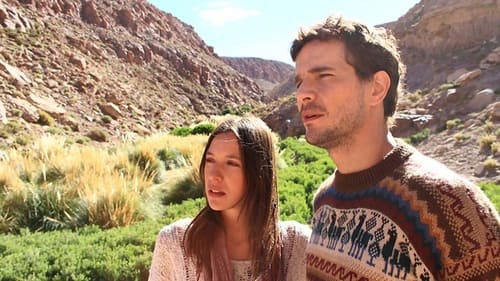
Director
Antonio, young Brazilian civil servant, travels to the Atacama Desert in search of inspiration to write a short story.

Script Consultant
Alejandro es un hombre de 55 años solitario, frágil e impredecible, atormentado por la hostilidad de su misterioso pasado. Es un hombre que busca una nueva identidad, pero que se pierde entre sus propios fantasmas y obsesiones: un hombre que comienza peligrosamente a desentrañar y cuya percepción de la realidad está distorsionada. "Carne de perro" cuenta la historia, en 2010, de una de los torturadores de la dictadura de Pinochet en su intento por redefinir y darle sentido a su existencia. (FILMAFFINITY)

Producer

Writer

Director

Jefe Matadero
Es la historia de Julio, un emigrante peruano, que llega a Chile en busca de un cambio en su vida. Julio es un hombre emocionalmente congelado por una pérdida que no logramos desentrañar y que tímidamente intenta movilizar sus emociones tratando de pertenecer a algo que no ansía. Esta es la historia de la alienación de un emigrante, la historia del síndrome de Ulises. (FILMAFFINITY)

Script Consultant
Teresa Wilms Montt es escritora, una mujer rebelde, atormentada y bella. Se casa a los 17 años desafiando la oposición familiar. Se enamora de quien no debe y un tribunal familiar la condena al encierro en un convento. Separada de sus dos hijas se escapa a Buenos Aires con Vicente Huidobro. Desde esa huida su vida se transforma en un apasionante y trágico itinerario. (FILMAFFINITY)

Producer
Three young Brazilian try to help a terminally ill woman who lives in the slums of Rio de Janeiro. Their youthful idealism is shattered with the cruel reality of police brutality.

Writer
Three young Brazilian try to help a terminally ill woman who lives in the slums of Rio de Janeiro. Their youthful idealism is shattered with the cruel reality of police brutality.

Director
Three young Brazilian try to help a terminally ill woman who lives in the slums of Rio de Janeiro. Their youthful idealism is shattered with the cruel reality of police brutality.
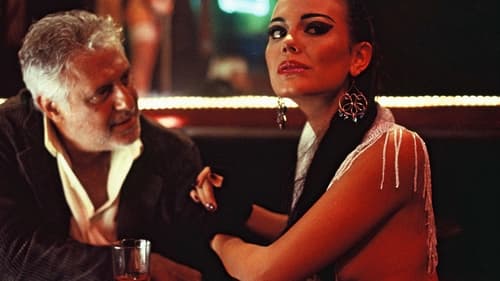
Writer
El ex-policía Vieira se ve envuelto en la muerte de su amante prostituta. Después de la muerte empiezan a pasarle cosas extrañas.

Script Consultant
Diciembre 1978. Chile y Argentina están a días de comenzar un enfrentamiento armado en la frontera sur. En la Patagonia, una patrulla chilena rompe accidentalmente su brújula y se pierde en medio de la pampa. Cavan sus trincheras sin saber si es Chile o Argentina. Comienza una larga espera que interrumpirá una patrulla argentina que se instala frente a ellos. Ambas esperan ahora la guerra, pero la tensa espera dará paso a la amistad que se da entre seres humanos que son enemigos, pero que confundidos por la soledad de la pampa, transitan en una frágil línea entre el deber y el querer.
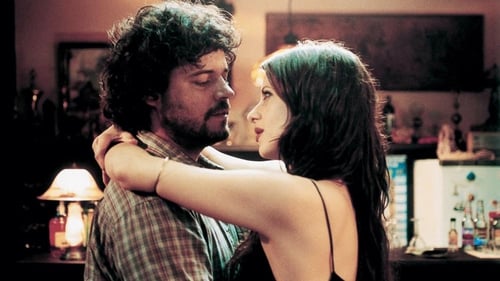
Writer
Basado en el cuento “Manuscrito hallado en un bolsillo” de Julio Cortázar, el director Roberto Gervitz nos propone el juego del título, llevado a cabo por Martín, pianista de un night club. Su imposible juego consiste en dibujar rutas del subterráneo de Sao Paulo en un pequeño cuaderno, tomar un tren y seguir a diferentes mujeres al azar, de llamativa belleza por lo general, para ver si alguna de ellas elige alguna de sus rutas preestablecidas. Si esto sucede, cosas del destino, aquella bien podría ser la mujer de su vida.

Script Consultant
When enemy members of the two main Chilean soccer teams, Azul and Paloma meet in a fight after a soccer game they fall in love at first sight. They run away through the night in the streets of Santiago, while two groups search for them, when they meet, happens the inevitable.

Writer
Three apartments in an old converted loft building set up the stage for three bizarre love triangles.

Writer
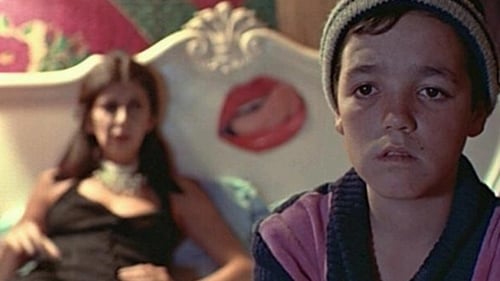
Screenplay
The true story of the boy who became famous when he was cast for the main part on the Brazilian film Pixote: A Lei do Mais Fraco (1981). After the film was over, he tried to work as an actor on other projects, with little success. As time went by, he got involved with crime.

Writer
Two children flee together with a grown up from a slum in Rio because this older person has had problems with the local drug lord. They end up in the house where a rich American lives with his daughter.

Screenplay
A female television journalist has a strange affair with a terrorist.
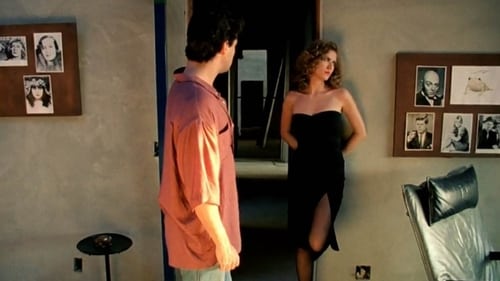
Writer
Gafanhoto is a smuggler who tries to take a hit by stealing a valuable stone. He awakens the fury of the old boss of the gang, and ends up involving in the plot a former colleague, Poeta and his girlfriend Cris, a beautiful woman who brings in the eyes the mark of the tragedy.

Writer
Teenager and his Chilean parents live in Rio de Janeiro, Brazil, in exile, after his brother is killed by the military government in Chile. Years later, still haunted by the past, he undergoes a crisis when he learns his cousin had been arrested in Santiago, and quarrels with his family when he decides to know his country and the details of his past.

Director
Teenager and his Chilean parents live in Rio de Janeiro, Brazil, in exile, after his brother is killed by the military government in Chile. Years later, still haunted by the past, he undergoes a crisis when he learns his cousin had been arrested in Santiago, and quarrels with his family when he decides to know his country and the details of his past.
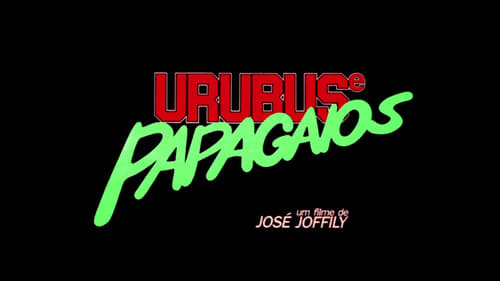
Writer
High Court judge returns to the small town where he was born, bringing along his beautiful and young wife. The local men get aroused and start looking for young lovers at the local bordello. Their wives even make promises and novenas asking the disappearance of the new couple. One day, the judge dies, leaving his wife unsatisfied. The corpse, as if wanting revenge, keeps an erection on.

Screenplay
Two friends get rich running an illegal gambling business. But soon they start to compete, and become rivals.

Assistant Director
Quilombo dos Palmares was a real-life democratic society, created in Brazil in the 17th century. This incredibly elaborate (and surprisingly little-known) film traces the origins of Quilombo, which began as a community of freed slaves. The colony becomes a safe harbor for other outcasts of the world, including Indians and Jews. Ganga Zumba (Toni Tornado) becomes president of Quilombo, the first freely elected leader in the Western Hemisphere. Naturally, the ruling Portuguese want to subjugate Zumba and his followers, but the Quilombians are ready for their would-be oppressors. The end of this Brave New World is not pleasant, but the followers of Zumba and his ideals take to the hills, where they honor his memory to this day. Writer/director Carlos Diegues takes every available opportunity to compare the rise and fall of Quilombo with the state of affairs in modern-day Brazil.

Writer
During the military dictatorship, a political militant takes his son out of the boarding school, and puts him temporarily in a friend's luxury and empty apartment in Copacabana beach. The son knows very little about his father, and the latter cannot really explain his activities to his son, fearing for his security. So the young man stands alone in the huge apartment, waiting for the infrequent meetings with his father, without really knowing what's going on.
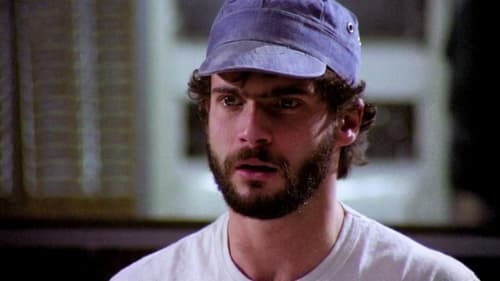
Writer
The routine of a group of brazilian teenagers living in Brasília, Brazil's capital. Their aspirations, dreams and illusions presented in a context of a country that was on the final years of a dictatorship back in the 1980s.
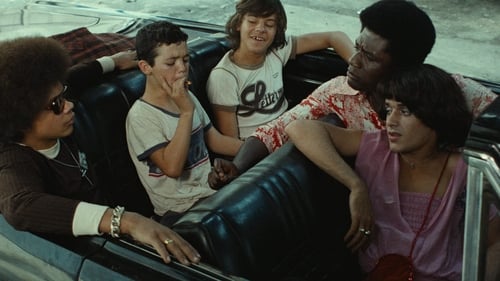
Screenplay
Pixote, un niño fugitivo de 10 años, es arrestado en las calles de Sao Paulo durante una redada policial a personas sin hogar. Pixote soporta la tortura, la degradación y la corrupción en un centro local de detención juvenil donde dos de los fugitivos son asesinados por policías que enmarcan a Lilica, una estafadora transvesti de 17 años. Pixote ayuda a Lilica y a otros tres niños a escapar donde se ganan la vida con la vida del crimen, que solo aumenta a más violencia y muerte.
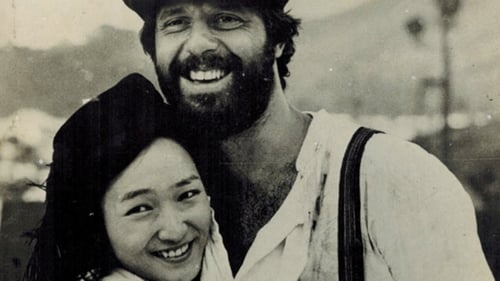
Writer
Based on fact, this is the story of the struggles of Japanese immigrants who traveled to and settled in Brazil looking for a better life.

Director
A punto de ser desalojado , los residentes de una comunidad hacen un llamamiento a las deidades que continúen en sus hogares . Yemanjá , la reina del mar de acuerdo con las religões Afrobrasileño envía el pescador Nelson para luchar por la permanencia de las familias .

Writer
History of a famous Brazilian bandit of the early seventies and his fight against a death squad.

Assistant Director
Tras la llegada de Salvador Allende al poder, Helvio Soto asume labores directivas en la Televisión Nacional de Chile, por lo que interrumpe su actividad cinematográfica. A fines de 1972 comienza a realizar su película mas conflictiva:Metamorfosis del jefe de la policía política. Se termina a mediados de 1973, pero viene el Golpe y Soto la puede recién estrenar en París, a fines de ese año. En otro contexto, la película que hablaba de las divisiones internas de la izquierda chilena, no fue bien recibida, dado el momento de solidaridad existente con Chile tras el Golpe y la crítica específica a lo que detonaría este conflicto, calificado incluso de “intelectualismo burgués”. Película nunca estrenada en Chile. Participó en la Quincena de Realizadores del Festival de Cannes.

Assistant Director
La película retrata en años previo al triunfo de la Unidad Popular, el proceso interno de un sacerdote católico que, enfrentado a las injusticias que observa en el entorno parroquial y ante la indolencia de la jerarquía eclesiástica, decide emprender por su cuenta el cambio social.

Screenplay
La película retrata en años previo al triunfo de la Unidad Popular, el proceso interno de un sacerdote católico que, enfrentado a las injusticias que observa en el entorno parroquial y ante la indolencia de la jerarquía eclesiástica, decide emprender por su cuenta el cambio social.

Assistant Director
El film muestra, en tres etapas con diferentes tonalidades de fotografía, la evolución política de Chile a partir de 1937: la subida al poder de Pedro Aguirre Cerda, el sexenato de González Videla y el triunfo de Salvador Allende. Incluye acontecimientos verdaderos como el asesinato del general Schneider, con intercalación de documentales y recuerdos personales del realizador, además de personajes de ficción. Una película que en su época advirtió al naciente gobierno de S. Allende que el voto si no es apoyado por el fusil será rápidamente destruido por la derecha que desea mantener sus privilegios y economía, entonces la revolución no puede ser por la vía electoral. En ella advierte que no se puede esperar que se mantengan impasible después del anuncio público de que van a perder sus privilegios.






























